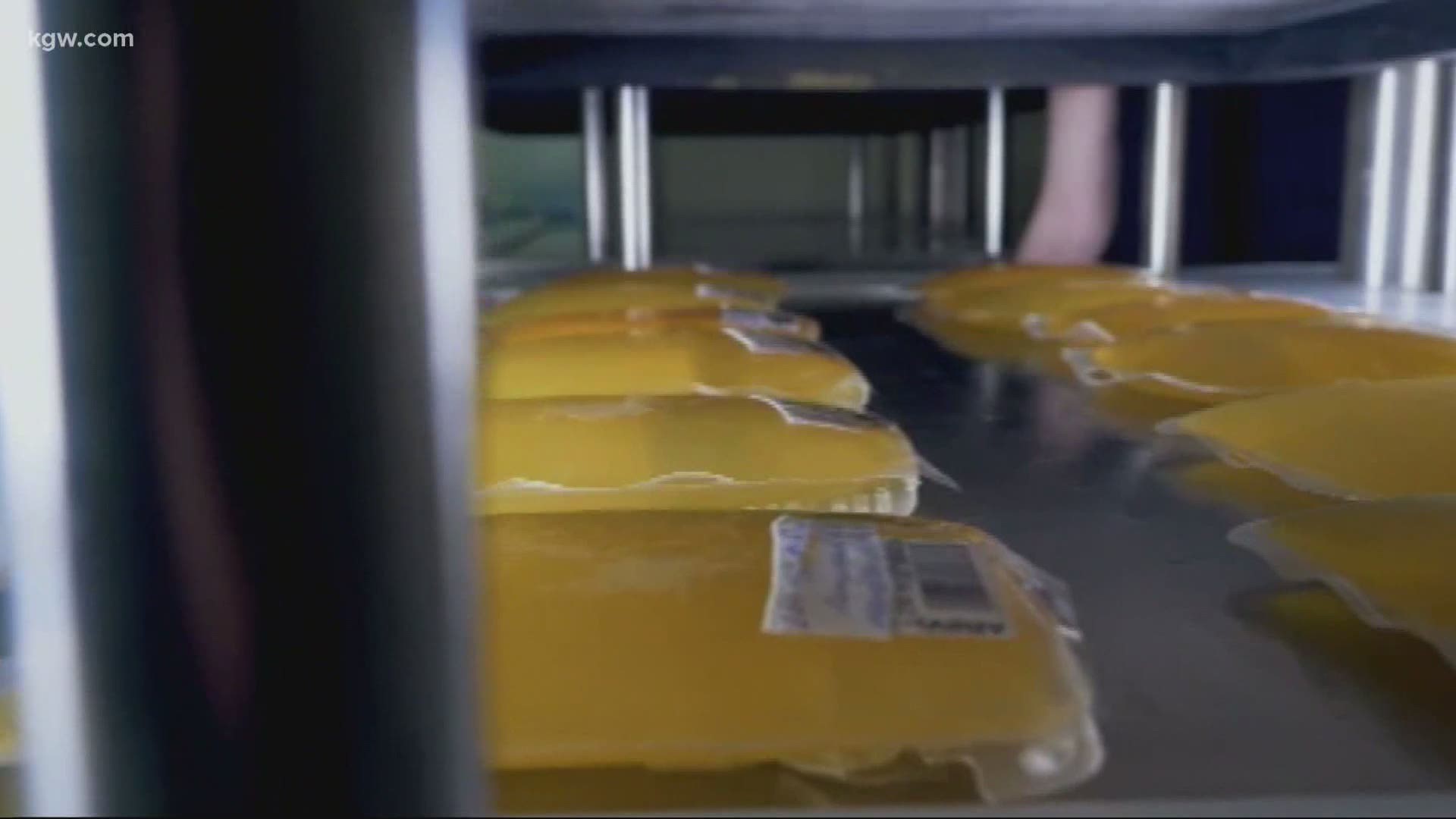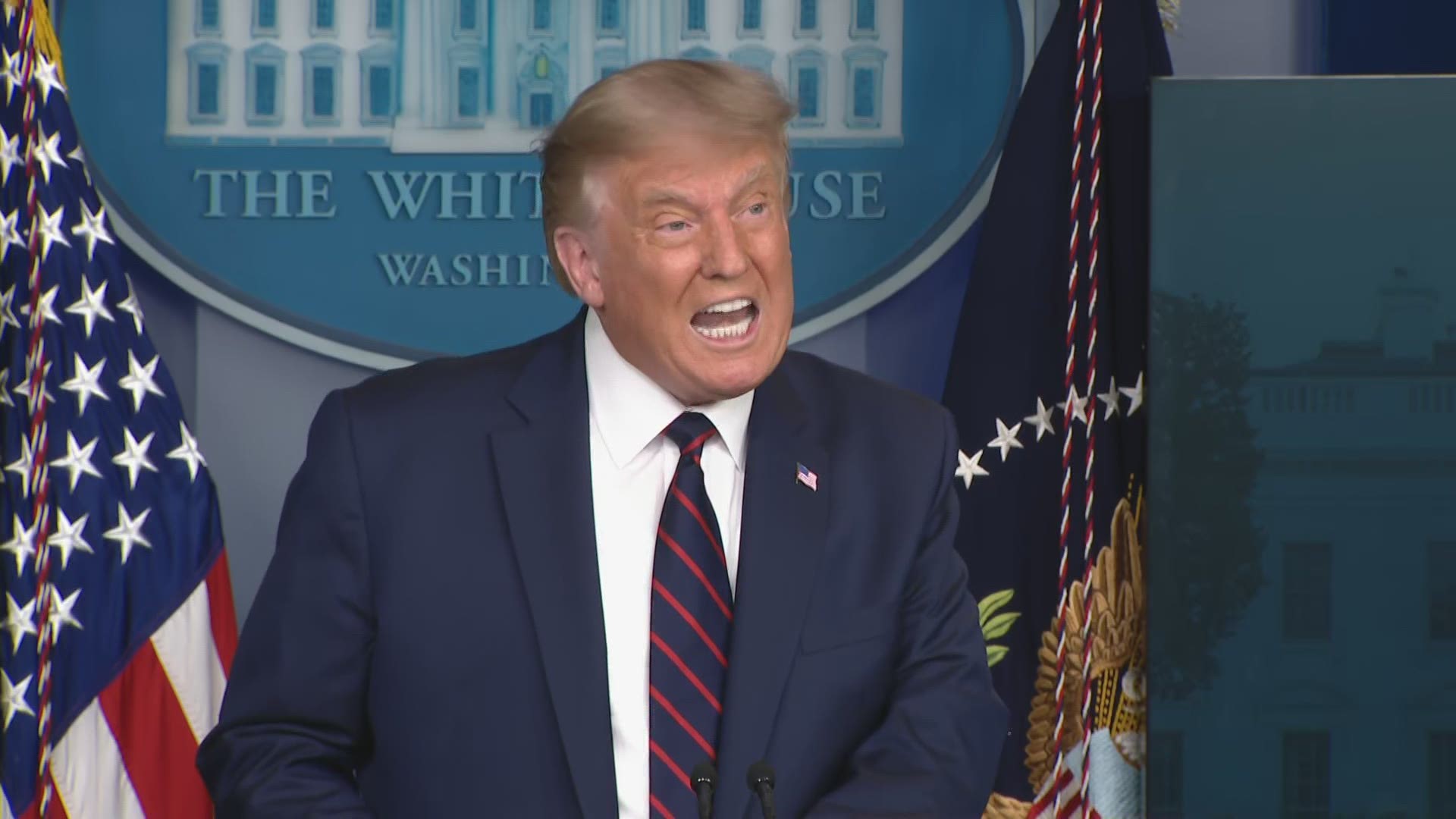PORTLAND, Ore. — There's been a lot of buzz this week about the use of convalescent plasma to help treat COVID-19. The Food and Drug Administration (FDA) recently approved its emergency use. Now, Oregon Health and Science University (OHSU) is part of a national study.
KGW talked with one of the first patients to receive convalescent plasma for COVID-19 in Central Oregon. Liliana Lockes' illness started back in April. Within three days, she was struggling to breathe and admitted into St. Charles Hospital in Bend. She was diagnosed with COVID-19.
"The first question I asked them was if anybody had died from COVID here at the hospital and they said nobody has died. So, I said I will let you do anything that needs to be done, but you have to promise me you have to bring me back. I cannot die yet," Lockes said.
It's a memory Lockes can laugh about now. But one that began more like a nightmare when her daughter Nicole first contracted the virus back in April.
"I was using all my precautions at this time. We didn't know much about it," Lockes said.
Still, a few days later, she started showing symptoms. It was Nicole who convinced her to go to the hospital. Within three days, Lockes was on a ventilator.
After two weeks, with no progress and her organs failing, her husband Craig Ohlin got a call from a doctor at the Mayo Clinic.
"This doctor called me and said do you think she would want to do it and I said yeah," he recalled. "So, that was that."
Lockes was given a convalescent plasma infusion for COVID-19. Within days, things started looking up.
"I think three days later after the infusion with the plasma, I was coming back, getting oxygen back," she said.
She had been in a medically-induced coma for two weeks.
"When I woke up, I thought I was in a nightmare," Lockes recalled. "I opened my eyes and was like what am I doing? Why am I still in the hospital?"
It took weeks for Lockes to regain her strength. But eventually she did.
"I think the plasma did the magic," she said.
Convalescent plasma is the plasma from people who have recovered from the virus. While it may have worked for Lockes, experts said it does not work for everyone, especially those who get it later in their illness.
The therapy is still very much under investigation. OHSU is taking part in one investigation, a nationwide study focusing on patients with less severe cases of COVID-19.
"We know that in that first week patients will be ill, but not seriously ill, and the question is can you give convalescent plasma to them so they don't get sicker? Dr. Mohamud Daya, professor of emergency medicine at OHSU, said.
So, the research hospital is looking for COVID-19 patients willing to take part in the study.
"They would be randomized to either receive one unit or one dose of convalescent plasma...and they'll be compared basically to a group that gets essentially what we would call a placebo but in this case its going to be a vitamin infusion," Dr. Daya said.
The study will last three months.
"This for sure could be a huge game-changer," Dr. Daya said.
Lockes agreed.
"I think it's a great thing. They don't have nothing to lose," she said. "I think that will save a lot of lives."


